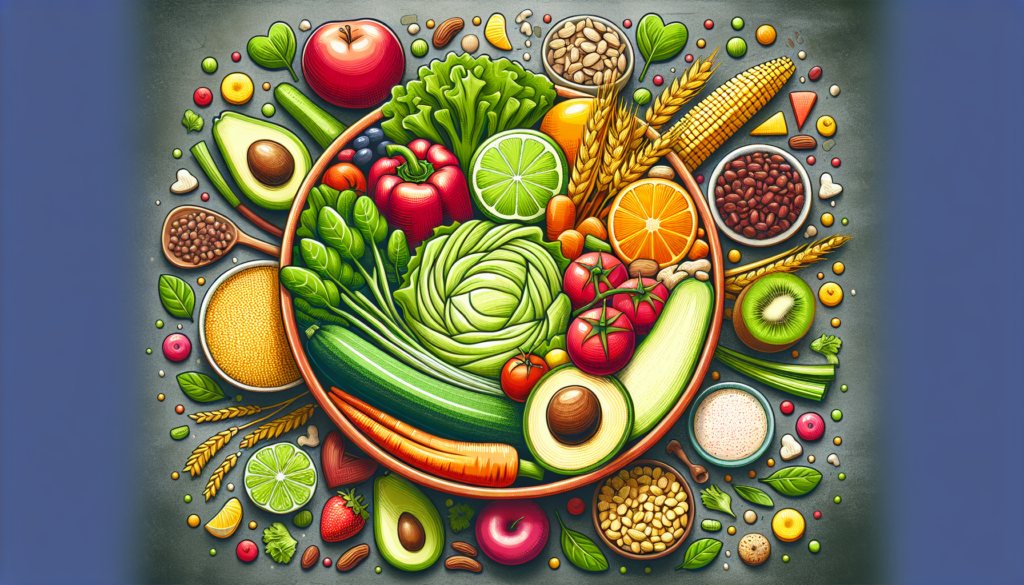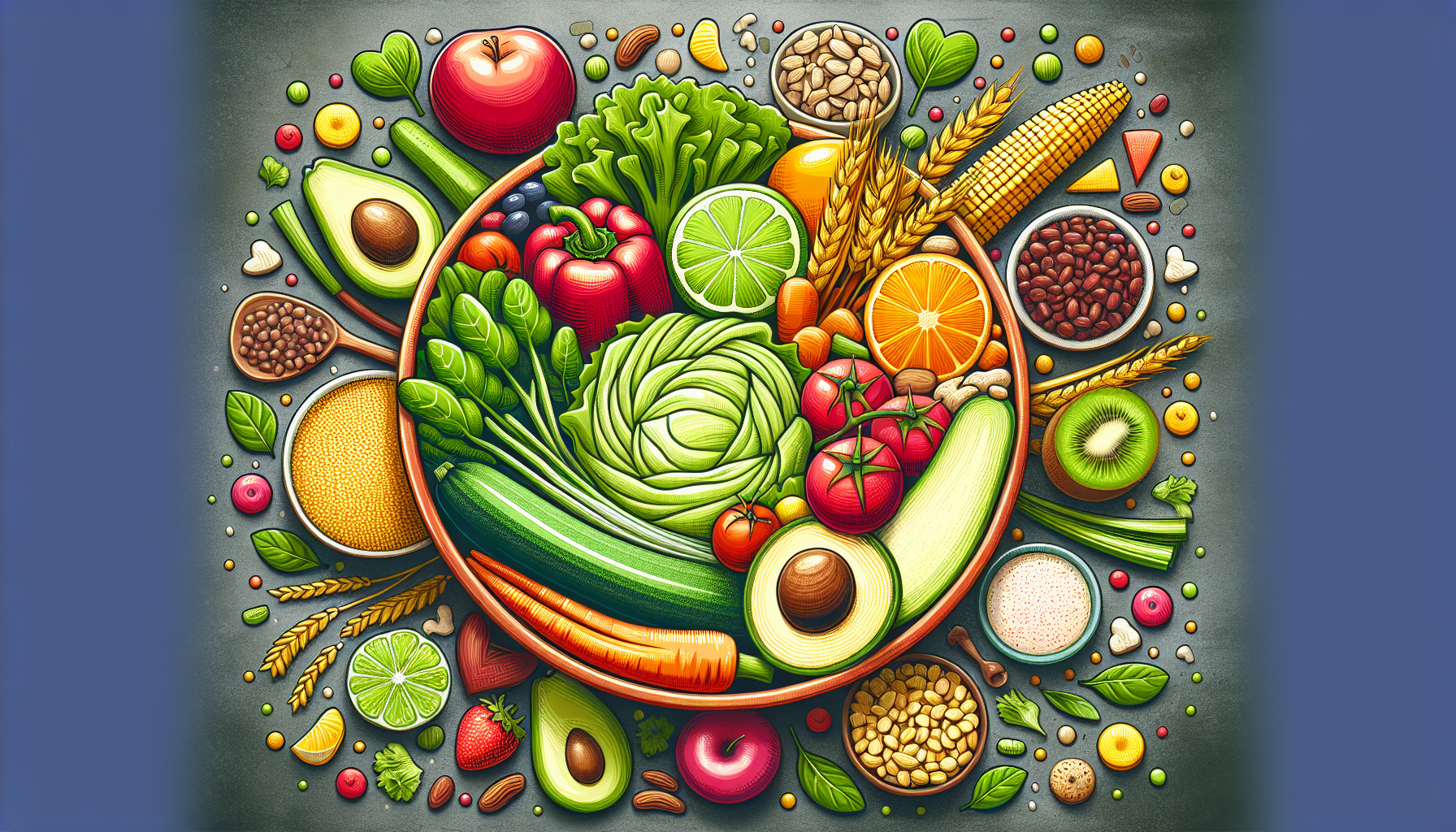Are you considering adopting a vegan lifestyle? Embarking on a vegan diet can be an exciting and transformative journey, but for many, knowing where to start can be a challenge. With an abundance of information and options out there, it’s important to have a clear understanding of the best ways to begin a vegan diet. In this article, we will explore practical tips and insights to help you kick-start your vegan journey with confidence and ease.
The Best Ways to Begin a Vegan Diet

Understand the Basics of a Vegan Diet
Before embarking on a vegan diet, it’s important to understand the basics of what it means to be vegan. A vegan diet eliminates all animal products from your meals, including meat, poultry, fish, eggs, dairy, and honey. It is a lifestyle that strives to minimize harm and cruelty to animals, while promoting a sustainable and compassionate approach to food choices.
Set Clear Goals
Before jumping into a vegan diet, it’s essential to set clear goals for yourself. Start by asking yourself why you want to adopt a vegan lifestyle. Are you motivated by the ethical treatment of animals, environmental concerns, personal health benefits, or all of the above? Having a clear vision of your goals will help you stay committed and motivated throughout your vegan journey.
Gradually Transition to a Vegan Lifestyle
Transitioning to a vegan lifestyle doesn’t have to happen overnight. In fact, it’s often more sustainable and manageable to make gradual changes. Start by incorporating one vegan meal into your diet each day, such as a plant-based breakfast or lunch. As you become more comfortable with these changes, gradually increase the number of vegan meals until your entire diet is vegan. This gradual transition allows your taste buds and body to adjust to the new eating pattern without feeling overwhelmed.
Educate Yourself on Nutritional Requirements
It’s crucial to educate yourself on the nutritional requirements of a vegan diet to ensure you are meeting all your body’s needs. While a well-planned vegan diet can provide all the nutrients your body needs, there are some nutrients that require special attention, such as vitamin B12, iron, calcium, and omega-3 fatty acids. Familiarize yourself with vegan sources of these nutrients and consider incorporating fortified foods or supplements to ensure you’re getting an adequate intake.
Consult with a Registered Dietitian
Seeking guidance from a registered dietitian who specializes in plant-based nutrition can be invaluable when starting a vegan diet. A dietitian can provide personalized advice, help you navigate any potential nutritional pitfalls, and ensure you’re meeting your individual needs. They can also offer practical tips for meal planning, grocery shopping, and dining out, making your transition to a vegan lifestyle much smoother.
Plan Your Meals in Advance
Meal planning is one of the keys to success when adopting a vegan lifestyle. Take some time each week to plan your meals in advance, including breakfast, lunch, dinner, and snacks. This will not only save you time and money but also ensure you have all the necessary ingredients on hand. When planning your meals, aim for a variety of fruits, vegetables, whole grains, legumes, nuts, and seeds to ensure you’re getting a wide range of nutrients.
Stock Up on Vegan Essentials
Before fully immersing yourself into a vegan diet, it’s important to stock up on vegan essentials. Fill your pantry with staples such as legumes (beans, lentils, chickpeas), whole grains (quinoa, brown rice, oats), nuts, seeds, plant-based milk, tofu, tempeh, and a variety of fruits and vegetables. Having these vegan-friendly ingredients readily available will make it easier to prepare delicious and nutritious meals without feeling deprived.
Explore New Vegan Recipes
Embrace the adventure of trying new vegan recipes and exploring plant-based alternatives to your favorite dishes. With the growing popularity of veganism, there is no shortage of amazing cookbooks, online resources, and recipe apps that cater to a vegan lifestyle. Experiment with vibrant salads, hearty stews, flavorful curries, and decadent desserts, and discover the limitless possibilities of vegan cooking.
Join a Vegan Community or Support Group
Joining a vegan community or support group can provide invaluable support and encouragement throughout your vegan journey. Connecting with like-minded individuals who share your beliefs and goals can help you stay motivated, exchange recipes and meal ideas, and share experiences and challenges. Whether it’s through local meetups, online forums, or social media groups, the vegan community is welcoming and supportive, providing a safe space for you to grow and thrive.
Stay Consistent and Listen to Your Body
Lastly, it’s important to stay consistent with your vegan lifestyle and listen to your body’s needs. While adopting a vegan diet can be exciting and rewarding, it’s also a journey of self-discovery. Pay attention to how your body responds to the changes, and make adjustments if necessary. If you find that certain foods don’t agree with you or you’re lacking in certain nutrients, don’t hesitate to tweak your diet and seek guidance from a healthcare professional. Trusting your instincts and taking care of your body will allow you to enjoy the numerous benefits of a vegan lifestyle.
In conclusion, beginning a vegan diet involves understanding the basics, setting clear goals, gradually transitioning, educating yourself on nutritional requirements, consulting with a registered dietitian, planning your meals, stocking up on essentials, exploring new recipes, joining a supportive community, and staying consistent. By following these steps and adopting a mindful and compassionate approach to your food choices, you’ll be well on your way to embracing a fulfilling and sustainable vegan lifestyle. Remember, it’s a journey, so be patient with yourself and enjoy the process.
